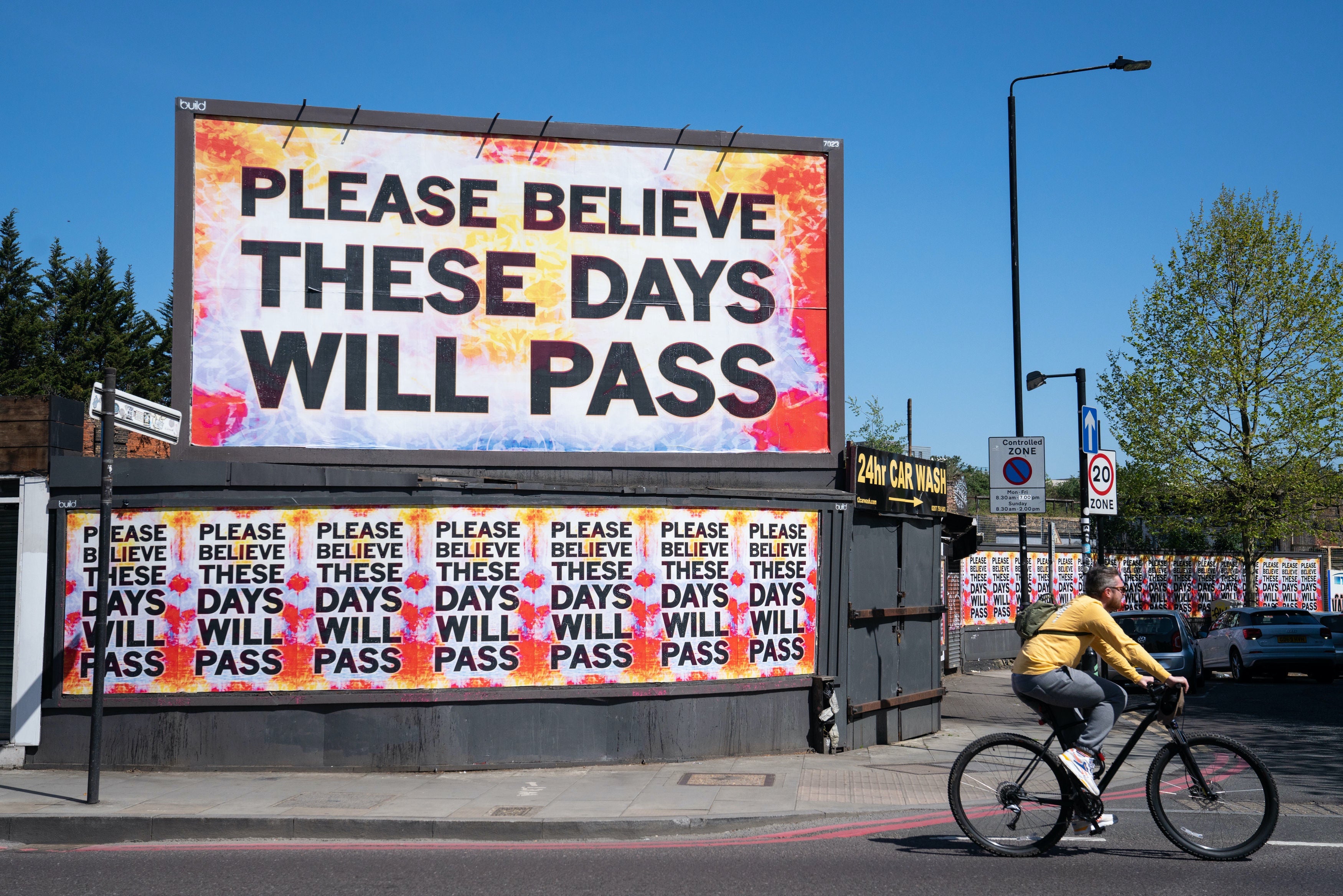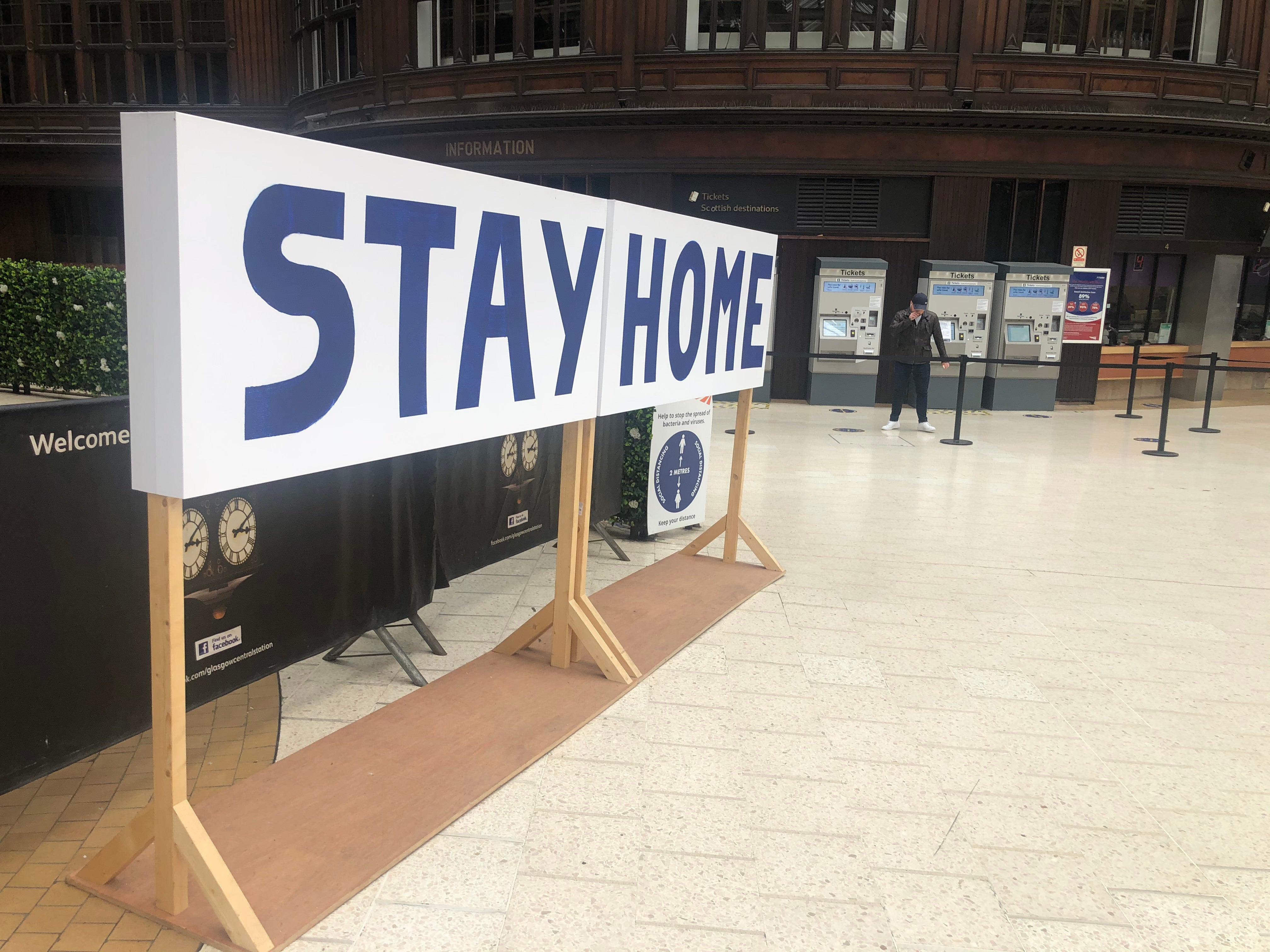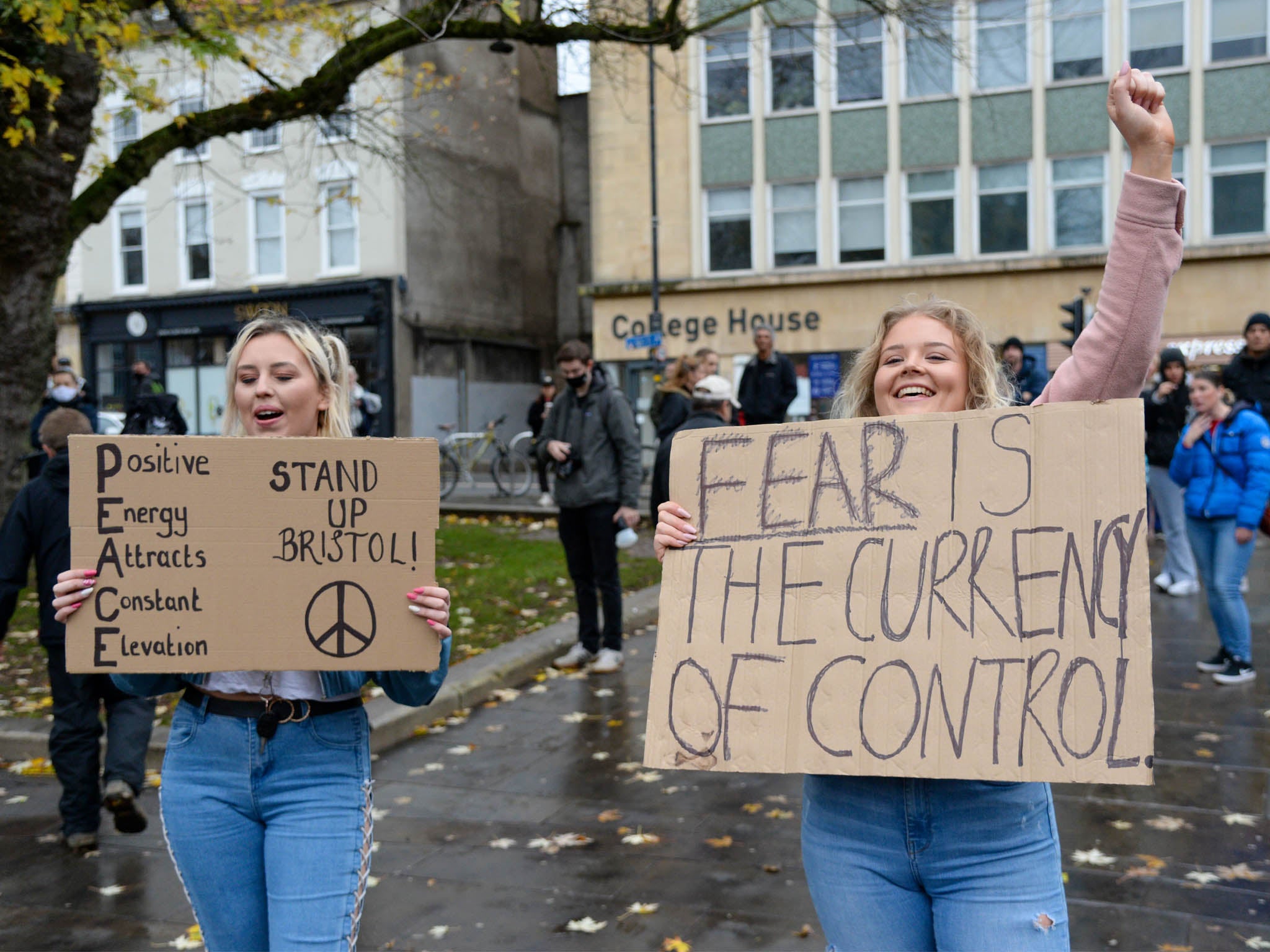Covid UK news: Another 462 deaths recorded as Whitty warns of ‘long and difficult’ winter
Follow for all the latest updates

Your support helps us to tell the story
From reproductive rights to climate change to Big Tech, The Independent is on the ground when the story is developing. Whether it's investigating the financials of Elon Musk's pro-Trump PAC or producing our latest documentary, 'The A Word', which shines a light on the American women fighting for reproductive rights, we know how important it is to parse out the facts from the messaging.
At such a critical moment in US history, we need reporters on the ground. Your donation allows us to keep sending journalists to speak to both sides of the story.
The Independent is trusted by Americans across the entire political spectrum. And unlike many other quality news outlets, we choose not to lock Americans out of our reporting and analysis with paywalls. We believe quality journalism should be available to everyone, paid for by those who can afford it.
Your support makes all the difference.As the UK records a further 462 Covid-19 deaths and over 26,000 daily positive infections on Saturday, scientists have issued several stark warnings with regards to lockdown measures.
In a document from the government’s Scientific Advisory Group for Emergencies (Sage), scientists warned that returning to a tiered system over the upcoming Christmas period after England’s current lockdown, which is set to end on 2 December, will see a rise in infections.
The group said that restrictions on normal life will be needed beyond December in order to keep the coronavirus under control. If such measures were not maintained, the rate of infections will plateau rather than fall, it added.
A member of Sage, Professor Susan Michie, also urge the public not to become complacent after promising news over a potential vaccine against Covid-19 emerged last week, and told people to stick to the rules to give the country its best shot at being able to spend Christmas with loved ones.
Meanwhile, anti-lockdown protests took place in several countries today, including the UK, France, Germany and Portugal. In the UK, demonstrators took to the streets in Liverpool and Bristol.
Jeremy Corbyn’s brother, Piers Corbyn, was arrested at the anti-lockdown protest in Bristol. He was among around 400 people who marched through the city to oppose lockdowns, social distancing, masks and “forced vaccinations”.
In contrast to the protests, Hindus, Sikhs and Jains celebrating Diwali depended on the Internet to stay connected and observe the festival of lights together, as the ban on mixing of households indoors forced them to cancel the usually-large family feasts.
Across the UK, councils and temples hosted on-screen celebrations that featured traditional singing and dancing from local performers, and people lit oil lamps to decorate the front steps of their homes.
Next two weeks “crucial” in ensuring lockdown ends
The next two weeks will be “absolutely crucial” in ensuring lockdown ends as planned on 2 December, one government advisor has warned.
Professor Susan Michie, a member of the Government's Scientific Advisory Group for Emergencies (Sage), urged the public to resist breaking current rules so as to "be in a position" to spend the festive period with friends and family.
Michie said that the announcement of a potential coronavirus vaccine may lead to complacency among people with the restrictions, adding that the vaccine will make “no difference” to the current wave.
This comes after documents released on Friday revealed Sage believe a return to a tiered system in the UK after lockdown will see a spike in coronavirus infections.
Speaking to BBC Radio 4's Today programme, Professor Michie said: "They're going to be a very challenging two weeks, partly because of the weather, partly because, I think, the promise of a vaccine may be making people feel complacent.”
Home Office did not consult councils on decision to remove asylum evictions during pandemic
Local authority leaders have condemned the Home Office for keeping them “in the dark” on a decision that would push street homelessness into their areas.
It has emerged that ministers did not consult councils when resuming to evict asylum seekers during the pandemic.
On 15 September, the Home Office announced that the ban on asylum evictions – introduced in March in response to Covid – was being lifted and that people refused refugee status would be served eviction notices “with immediate effect.”
However, new information obtained under freedom of information laws indicate that local authorities were not consulted, which they have said was “wholly unacceptable.”
May Bulman has the story

Home Office did not consult councils on decision to resume asylum evictions during pandemic
Exclusive: Local authority leaders condemn Home Office for keeping them ‘in the dark’ on decision that would push up street homelessness in their areas
Medical ‘advances’ of 2020 could transform health care, leading experts say
Developments made in diagnostics, therapeutics, vaccine manufacturing and medical telecommunications are expected to leave a lasting legacy beyond the pandemic, health figures say.
For example, technology used to develop the Pfizer vaccine could be used to tackle illnesses such as cancer and other infections that are similar to coronavirus.
Meanwhile, oncologists, vaccinologists, biomedical engineers and doctors have all told The Independent that the technological advancements seen throughout the pandemic could have a “profound” impact on the future provision of care for patients suffering with a variety of conditions.
Sir Jeremy Farrar, director of the Wellcome Trust, said: “I think we'll look back on the advances made in 2020 and say that was a moment when science really did make a leap forward, which we will come to celebrate in due course.”

Medical ‘advances’ of 2020 could transform future health care, leading experts say
Developments made in diagnostics, therapeutics, vaccine manufacturing and medical telecommunications expected to leave legacy that endures beyond pandemic, health figures say
Alcohol ban introduced on Scotland’s railway
Rail passengers on trains and in stations throughout Scotland will be prohibited from consuming alcohol from Monday onwards, in what the nations main train operator described as a “temporary measure”.
ScotRail announced: “The new measures will help to maintain the physical distancing required while travelling and will also support greater use of face coverings at all stages of the journey.
ScotRail’s sustainability and safety assurance director, David Lister, added: “The introduction of these restrictions on alcohol will help to ensure that our staff and customers remain safe.”
Rail staff will be encouraged to wear body cameras to help enforce the restrictions.
Simon Calder has the story here

Alcohol ban introduced on Scotland’s railway
Union welcomes decision to prohibit drinking and calls for members to wear body cameras
Gym owner facing £67K fine for refusing to close during lockdown
The owner of a gym in north London is facing a £67,000 fine from his local council after he refused to close during England’s second national lockdown.
Andreas Michli, 34, said he finally closed his gym’s doors in Wood Green on Wednesday after police physically blocked customers from entering his premises.
Mr Michli told the PA news agency: "It was a bit of a pointless thing to do keeping the gym open while it was basically empty.
"A few people managed to climb over walls and shift through little gaps to get in, but it was pretty much empty."
Haringey Council have repeatedly issued fines against the owner, and is now seeking to obtain a closure order through the courts.
Haringey Council leader Joseph Ejiofor said while the lockdown was an "extremely difficult time" for local businesses, the "law is the law and it applies to everyone".
Anti-lockdown protestors arrested in Bristol after mass gathering
Some 200 demonstrators marched through Bristol on Saturday to protest for the right to gather in large groups – currently banned under new lockdown restrictions.
Local police arrested several protestors who refused to leave the anti-lockdown march while onlookers could be heard chanting “shame on you, shame on you" toward the officers.
Some of the signs held by those in attendance read “Fear is the currency of control” and “I do not consent.”
The conspiracy group Stand Up Bristol had organised the protest through their Facebook group, which currently has more than 2,800 members.
The group were warned by police before the march that participants will face fines for breaking coronavirus restrictions, with the current law stating that those caught participating in large gatherings can be fined £200.

Minister warns ‘more dramatic action’ may be needed to curb virus in Scotland
Latest figures show 36 new coronavirus deaths in Scotland and 1,118 new positive cases, with the test positivity rate at 5.8 per cent
The Scottish government announced on Saturday that there were 1,198 people in hospital with coronavirus and 92 are in intensive care.
Meanwhile, Deputy First Minister John Swinney warned "more dramatic action" may be needed to curb the spread of the virus in parts of Scotland.
Speaking on Friday, Mr Swinney said: "The hard issue we have got to look at about some of the level three areas is on the question of whether we think Level 3 restrictions are making enough of an impact, and the numbers are so stubbornly high in some of these areas it is posing the question perhaps these level three restrictions are not doing enough to suppress the virus.”
Latest figures on coronavirus in the UK
The latest figures for coronavirus in the UK show 462 new deaths in the previous 24-hours while 26,860 have tested positive for the virus.
This brings the total number of deaths from coronavirus to 2,878 in the last week, and to 51,766 since the pandemic began.
Overall, 1,344,356 million have been infected with Covid in the UK.
Meanwhile, 1,806 new patients have been admitted with coronavirus and 11,320 have been admitted in the last seven days.
Latest figures show 10 coronavirus deaths in Northern Ireland
A further 10 people with coronavirus have died in Northern Ireland, the Department of Health said on Saturday.
The death toll recorded by the department now stands at 846.
There were also another 511 confirmed cases of the virus recorded in the last 24-hour reporting period.
A total of 46,359 people have tested positive for Covid in Northern Ireland since the pandemic began.
Chris Whitty predicts hardest winter for NHS in recent memory
The government’s chief medical officer has warned that the coming months will be the most difficult period the NHS has endured for decades, as the second wave of coronavirus hits the UK.
Chris Whitty cautioned that nurses, doctors and other healthcare workers will be stretched to their limits all over again as they attempt to prevent hospitals being overwhelmed.
In an interview with The British Medical Journal, Mr Whitty said: “I’m much more concerned about everybody who’s working on the front line because that’s the really hard work.”
“And as we look forward to what’s going to be an extremely difficult winter for the NHS – one that I suspect, unfortunately, will be unlike any we’ve seen in recent memory,” he continued, “I’m really concerned about the welfare and the morale of all the medical professionals who are working on this, because this is going to be a long and difficult slog.”

Chris Whitty predicts hardest winter for NHS in recent memory
‘I’m really concerned about the welfare and the morale of all the medical professionals who are working on this’
Join our commenting forum
Join thought-provoking conversations, follow other Independent readers and see their replies
Comments